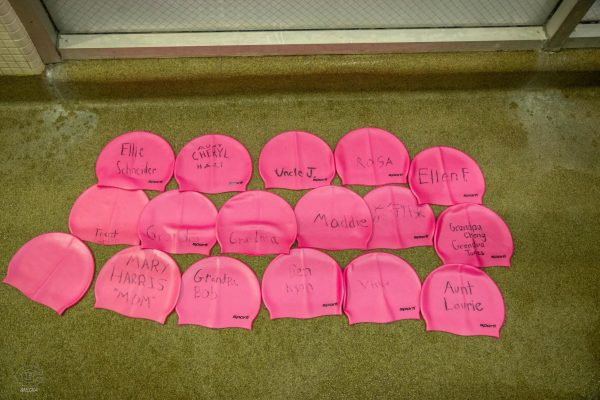Opinion: Ditch the E-book
October 12, 2016
Late at night, a student comes to the crushing realization that they have not completed their English reading. Perhaps Shakespeare is keeping them up at night, or Kurt Vonnegut. Either way, when it comes to crunch time to get the assignment read, an e-book may be the method of choice for the student. In ditching the traditional paperback, students are actively compromising their health and the effectiveness of their reading. Although e-books do offer convenience and environmental benefits, they are damaging to student health, and are not as effective as traditional hard copy books.
It certainly is true that e-books are beneficial in some ways, such as in limiting paper consumption, and being more convenient than traditional hard copy books. Every time one decides to use an e-book rather than a hard copy, paper is saved, and trees are conserved, simple as that. Conserving trees where possible is undoubtedly a good thing, and e-books do help in that regard. Additionally, e-books offer convenience that hard copies cannot match. Instead of having to keep track of multiple different books at one time, students only have to remember one object: their iPad. E-books can be easily downloaded in a manner of minutes, compared to hard copies requiring days to ship out. Oftentimes, the cost of e-books can be much lower than the cost of the hard copies, and can even come with added features such as built-in pictures and videos. Additionally, e-books are easy to annotate, with built-in highlighting and text features being extremely common.
However, one of the important reasons for hard copies being being preferential to ebooks is that ebooks can be damaging to student health. Accessing e-books late at night can prevent students from getting to sleep in a time-efficient manner. According to a BBC study, using devices such as iPads right before bed can stunt or stop the body’s natural production of the sleep hormone melatonin.
Dr. Victoria Revell, who ran the study, said, “we should be advising people to minimise their [light-emitting e-reader] use in the evening, particularly teenagers who are a group that are using their phones and tablets late into the evening.”
Additionally, using screens extensively during the day can cause eye strain in teenagers, characterized by sore and irritated eyes, blurry vision, and pain in the shoulders and the neck. Although these symptoms are not particularly damaging to long-terms health, they can cause irritation and poor performance in the short-term. Minimizing actions detrimental to student health is a goal at Creighton Prep, and attempting to eliminate eye strain should be a part of that goal.
Second, reading from e-books is simply not as effective as reading a hard copy of a book. The Guardian published a study from Norwegian researcher Anne Mangen, which tested reading comprehension using e-books and hard copies. The study found that when asked to sort the events of the story in chronological order, the ebook readers did significantly worse than those who read the hard copy.
“The haptic and tactile feedback of a Kindle [or other ebook readers] does not provide the same support for mental reconstruction of a story as a print pocket book does,” said Mangen.
When reading on an e-book, the mind tends to wander away. The distractions of everything the games and apps the Internet has to offer at the fingertips of any reader when they pick up an e-book. The mere temptation to be driven off-task is greater when the device to do so is already in the student’s hands.
Overall, there are various issues with using e-books instead of physical, printed books. Staring at a screen for hours on end has been shown to hurt student health. The light emitted from the iPad or other e-book reader can cause sleep loss, and prolonged access with computer or iPad screens can cause multiple eye-related issues, such as eye strain. Moreover, reading comprehension is lower when students read on iPads instead of the physical copies, and distractions run rampant. E-books do offer some tangible benefits, such as helping the environment, and running a lower price, but these benefits are too few and far between to justify the loss of productivity and health issues that come with reading e-books. Reading from hard copy books is what is best for student’s and it’s time to give them what they need.




